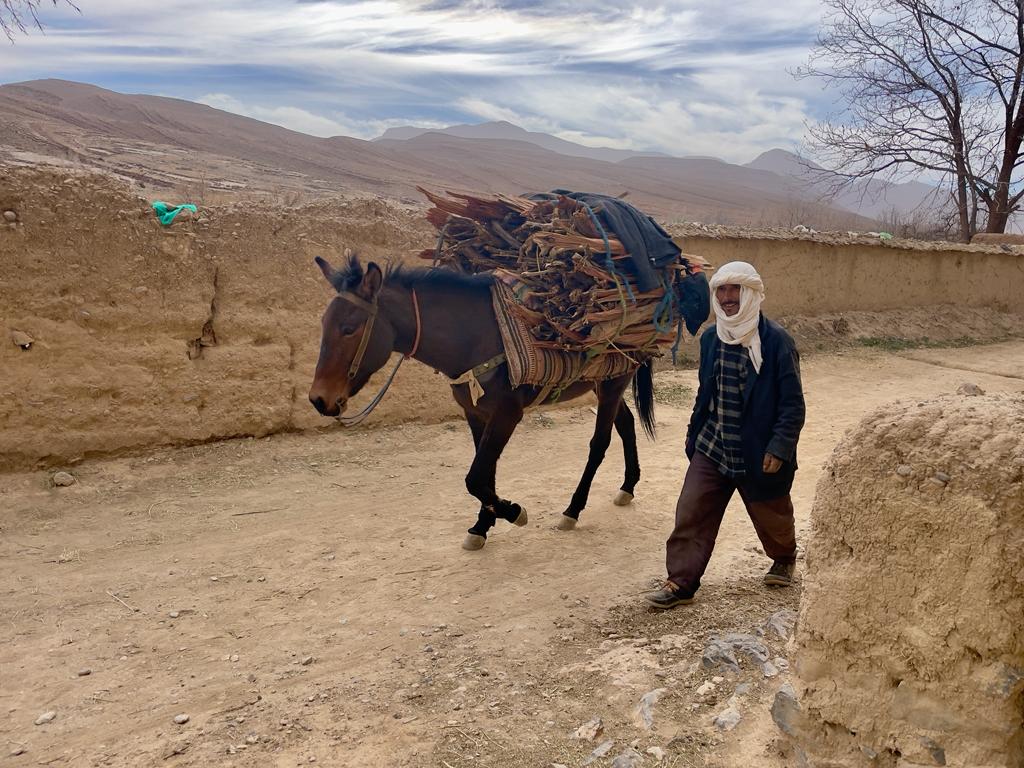Said Skounti is a researcher at the IMAL Initiative for Climate and Development based in Morocco.
Frontline communities around the world are shouldering the deleterious injustices of climate change, especially in Africa despite it emitting only around 4% of total global carbon emissions.
A case in point is the nomadic Amazigh tribes in the southeastern reaches of Morocco. The Amazighs are the oldest known inhabitants of Northern Africa. Their ancestral lifestyle is threatened by climate change, manifest in consecutive years of drought, relentlessly eroding their rights, including access to water and education, and their heritage.
The story is personal to me, as I am from this region, and these are my people. My father was a nomad but was forced to give up nomadic life and settle in a village due to drought in the early 1980s.
Among our tribe, “we’ve gone from nearly 600 tents in 1961 to just a few dozen today”, my father declares. According to the national census, Morocco’s total nomadic population in 2014 stood at just 25,274, a 63% drop from 2004.
“Great enabler of climate action” – UN urges Bonn progress on new finance goal
As pastoralists reliant on livestock, particularly sheep and goats, nomadic families depend on suitable pastures, but drought increasingly has rendered pastures and water sources barren. “This is the eighth consecutive year of drought, this situation is unprecedented,” a 91-year-old nomad told me.
This is also a story of loss and damage to the nomads’ very culture and way of life. As someone familiar with the experience of displacement, I have witnessed how climate change strikes at the heart of our culture and identity. It’s not just about losing homes or livelihoods — it’s about losing the very essence of who we are.
Each drought-induced exodus undermines our traditions, leaving us adrift in a world that seems less and less familiar.
This is an existential crisis for my community.
In search of water
In Morocco, the frequency of droughts has increased fivefold, from one dry year in 15 between 1930-1990 to one dry year in three over the last two decades. Now, the Intergovernmental Panel on Climate Change predicts a doubling of drought frequency in North Africa to come.
Water is being lost, and much is lost with it. As Moha Oufane, another nomad, said to me: “Water is everything. It’s the most important thing for us. We can buy food and feed livestock with what’s left in the mountains or by going into debt, but water can’t be bought. It’s priceless.”
Water shortages are disrupting traditional pastoral routes, forcing families to give up nomadism or put themselves at risk. In the past, the year would be structured around a well-defined nomadic pattern: summer months were devoted to Agdal-to-Imilchil, while winter months were spent on the Errachidia side, with a return to Assoul (a village in Tinghir) and the surrounding area when the cold set in.
Today, this traditional route no longer exists. Nomads go where little water remains, to preserve their livelihoods and the lives of their livestock.
Only one new water point exists on this traditional route, a project led by the Moroccan state. “This project is extremely beneficial for us,” Moha says. “Similar projects in other nearby areas would be of immense help to us.”
Loss and damage sub-goal
Many nomads are forced to go into debt to feed their livestock, their main source of income, which worsens their situation. According to Moha, some accumulated debts of nearly 30,000 dh ($3,000) between October 2023 and January 2024”. Debt has long been used by these communities, but this was when nomads were confident of being able to pay it back after good rainfall seasons, which is no longer the case.
Conflicts over territory and diminishing water-dependent resources, once unthinkable, now disrupt the social cohesion and hospitality for which nomadic communities are renowned.
The plight of Morocco’s nomads illustrates the need for international support for climate-affected communities. Rich historic-emitter countries must honour their obligations to provide climate finance under the United Nations Framework Convention on Climate Change (UNFCCC).
Quality – not just quantity – matters in the new climate finance goal
Economic costs of loss and damage in developing countries are estimated to reach $290-580bn/year by 2030. Grant finance, not debt, must be provided for communities to repair and recover. Developing countries should not have to spend a penny to cope with loss and damage they did not cause. However, despite the celebrations, the new UN Loss and Damage Fund has only received $725 million in pledges.
We need a sub-goal for loss and damage in the New Collective Quantified Goal (“NCQG”) on climate finance, to be debated over the coming days at the mid-year UN climate negotiations in Bonn and the agreed at COP29 in Baku. It is immoral for developed countries to be blocking such a sub-goal.
It is outrageous that nomads and frontline communities should be left to fend for themselves and see their ancestral lifestyles, identities and cultures eroded, while some wealthy nations prosper from investment in fossil fuels and find public finance for their own purposes but not for climate finance. We refuse to be collateral damage in a game of power and profit.
